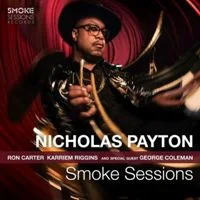Styles: Vocal
Year: 2011
File: MP3@256K/s
Time: 79:06
Size: 152,1 MB
Art: Front
(4:03) 1. Got To Get You Into My Life / Happy Together
(6:26) 2. Come Together
(3:53) 3. Always Something There To Remind Me
(5:50) 4. A Case Of You
(0:49) 5. "Do You Remember Those Long Car Trips..."
(3:59) 6. Back-Seat-Of-The-Car Medley
(3:41) 7. Yesterday
(0:49) 8. "We Would Like To Take This Time..."
(4:46) 9. You've Lost That Lovin' Feelin'
(0:38) 10. "Having A Dad Who Was A Reporter..."
(4:36) 11. Blowin' In The Wind
(0:52) 12. "I Wanted To Be The 6th Dimension..."
(5:24) 13. Didn't We / MacArthur Park
(4:27) 14. I Know A Place / Downtown
(3:49) 15. These Boots Are Made For Walkin'
(1:38) 16. "We Were Very Different..."
(5:16) 17. That's The Way I've Always Heard It Should Be
(2:58) 18. The Way We Were
(0:50) 19. "The Ed Sullivan Show..."
(8:54) 20. Stevie Wonder Medley
(0:16) 21. "One Album That Unites Us..."
(5:02) 22. You've Got A Friend
Year: 2011
File: MP3@256K/s
Time: 79:06
Size: 152,1 MB
Art: Front
(4:03) 1. Got To Get You Into My Life / Happy Together
(6:26) 2. Come Together
(3:53) 3. Always Something There To Remind Me
(5:50) 4. A Case Of You
(0:49) 5. "Do You Remember Those Long Car Trips..."
(3:59) 6. Back-Seat-Of-The-Car Medley
(3:41) 7. Yesterday
(0:49) 8. "We Would Like To Take This Time..."
(4:46) 9. You've Lost That Lovin' Feelin'
(0:38) 10. "Having A Dad Who Was A Reporter..."
(4:36) 11. Blowin' In The Wind
(0:52) 12. "I Wanted To Be The 6th Dimension..."
(5:24) 13. Didn't We / MacArthur Park
(4:27) 14. I Know A Place / Downtown
(3:49) 15. These Boots Are Made For Walkin'
(1:38) 16. "We Were Very Different..."
(5:16) 17. That's The Way I've Always Heard It Should Be
(2:58) 18. The Way We Were
(0:50) 19. "The Ed Sullivan Show..."
(8:54) 20. Stevie Wonder Medley
(0:16) 21. "One Album That Unites Us..."
(5:02) 22. You've Got A Friend
Broadway veteran Liz Callaway and cabaret/jazz vocalist Ann Hampton Callaway joined forces for an extended engagement at Birdland in 2011, exploring favorite pop songs from the 1960s and early '70s. The two sisters explain a little bit about their influences and thoughts about some of the songs between performances and connect with their attentive audiences. Whether singing together or individually, they capture the essence of each song, supported by pianist Alex Rybeck's lively arrangements. They're equally effective interpreting ballads like Carly Simon's "That's the Way I Always Heard It Should Be" and Marvin Hamlisch's "The Way We Were" as a duo, complementing one another's voices. They have a lot of fun playing off the Beatles' stoner favorite "Come Together" and offer a "Back-Seat-of-the-Car" medley that includes snippets of many favorites from the late '60s and early '70s. But the strongest songwriter represented in this collection is easily Stevie Wonder, who is honored with an extended medley of songs that mostly have been widely recorded by jazz artists. This live recording is an enjoyable look at the past that never bogs down into predictability. ~ Ken Dryden
http://www.allmusic.com/album/boom!-live-at-birdland-mw0002159883
Personnel: Liz Callaway (background vocals); Ann Hampton Callaway (background vocals); Alex Rybeck (piano, background vocals); Ron Tierno (drums); Jered Egan (background vocals).
Personnel: Liz Callaway (background vocals); Ann Hampton Callaway (background vocals); Alex Rybeck (piano, background vocals); Ron Tierno (drums); Jered Egan (background vocals).



